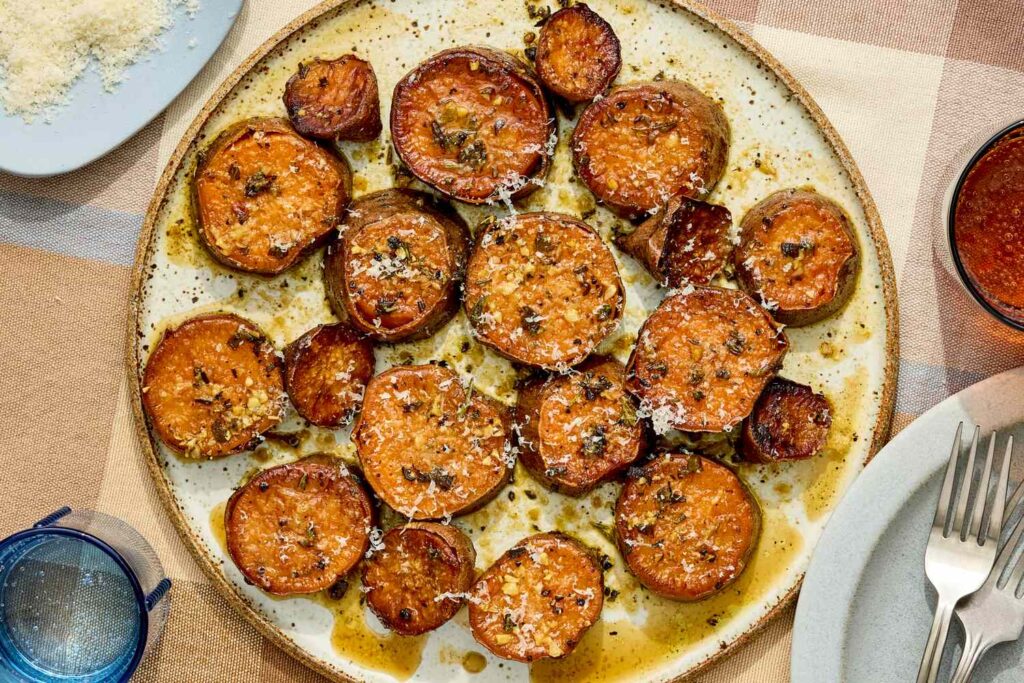- This melt-in-your-mouth sweet potato side dish is perfect for holiday meals as well as everyday dining.
- Leaving the skins on your sweet potatoes provides extra fiber for good gut health.
- Choose sweet potatoes of similar size, not too large, to ensure even cooking.
Our Garlic-Parmesan Melting Sweet Potatoes are melt-in-your-mouth delicious and perfect to accompany your dinner tonight. Antioxidant-rich sweet potatoes are roasted in a combo of butter and heart-healthy olive oil. We added tons of inflammation-fighting garlic to the broth, which infuses the sweet potatoes and makes them tender and fluffy on the inside. The Parmesan cheese adds the best umami flavor, complementing the bright herbaceousness. Keep reading for our expert tips on technique, baking pan suggestions and more.
Tips from the EatingWell Test Kitchen
These are the key tips we learned while developing and testing this recipe in our Test Kitchen to make sure it works, tastes great and is good for you too!
- When selecting sweet potatoes, choose ones that have a block shape (instead of cylindrical) and are narrower in diameter. This will ensure that the rounds are uniform in size and won’t crowd the pan.
- If you’re looking to try something different, consider replacing the sweet potatoes with purple potatoes or Japanese sweet potatoes.
- For this recipe, it’s best to use a metal baking pan. A glass dish (even Pyrex) could shatter when you add the broth mixture to the hot pan.
- For the best flavor and texture, we suggest grating the Parmesan cheese by hand instead of using pre-grated cheese.
Nutrition Notes
- Sweet potatoes are packed with beta carotene, which is converted to vitamin A in the body. This vitamin is essential for healthy vision, skin and immune function. We leave the skins on the sweet potatoes in this recipe, so you get the additional fiber benefit—great for your gut health.
- Garlic doesn’t get enough credit for its powerful nutritional benefits. When you cut or smash garlic, like we do in this recipe, you release an antioxidant called allicin, which is anti-inflammatory and great for heart health.
- Parmesan cheese is considered a hard cheese, which means it is lower in lactose and higher in calcium—two benefits if you are lactose-intolerant. Traditionally, Parmesan cheese is not considered a vegetarian option because it is made with animal rennet, so if you are following a vegetarian diet, be sure to look for a vegetarian-friendly Parmesan cheese.
Photographer: Robby Lozano, Food Stylist: Emily Nabors Hall, Prop Stylist: Phoebe Hausser.

